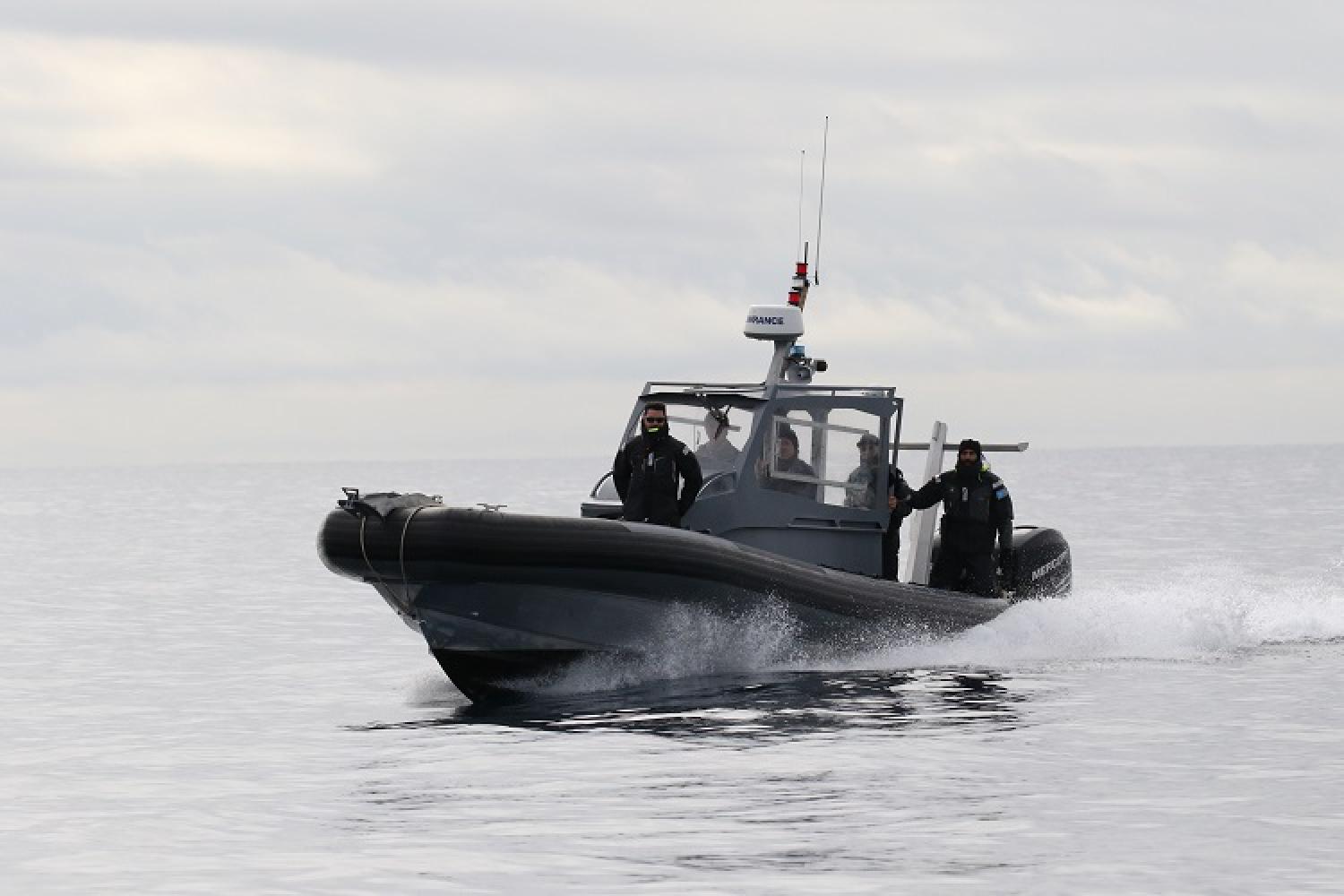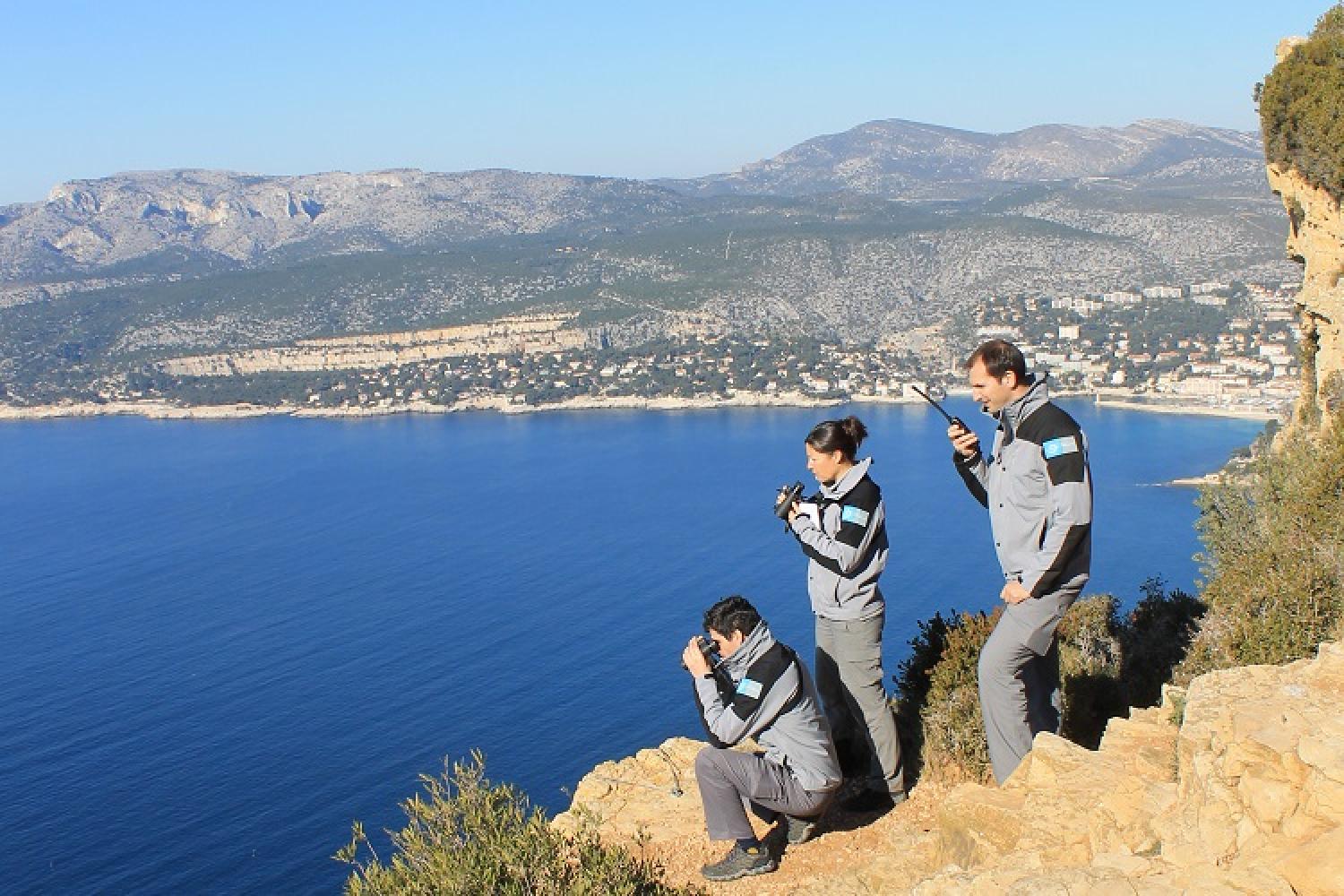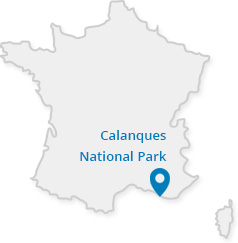Preventing and punishing violations in the Calanques
The general framework for enforcement
The effective implementation of public environmental policies requires, in addition to the necessary awareness-raising and inventive actions, effective environmental policing, both at the administrative and judicial levels. Issues such as renewing natural resources, maintaining and restoring species, habitants and landscapes, the curbing of biodiversity erosion and the limitation of pollution require environmental policing with appropriate prerogatives and technical skills.
Environmental policing is based on two complementary systems: police administrative policing tools that are primarily preventative in nature, associated with a prior authorisation process, while judicial policing tools are designed to deter and stamp out. Intelligent and pragmatic implementation is an essential determining factor of their effectiveness.
Targeted checks on the area's sensitive issues
The monitoring activity carried out in the Calanques National Park, like that of the State's public services and establishments, falls within a strict framework. Compliance with the regulations gives rise to national priorities, which are applied at regional and departmental level, according to the specific issues present locally. Among these national issues, the following are pertinent to the Calanques National Park:
- Combating pollution
- Protecting the natural environment and its functionality
- Preserving the coastline and marine environments
- Protecting natural spaces, sites and landscapes
- Complying with regulations about removal of flora and fauna
- Protecting endangered species
- Controlling hunting and combating poaching
- Controlling the keeping of non-domestic species
The control plan: an indispensible tool
The national priorities, broken down and cross-referenced with local issues are included in a interdepartmental interservices control plan. The control plan is drawn up by State services with public establishments and other control services and steered by the departmental director of land and sea, under the authority of the departmental prefect, in conjunction with the public prosecutor. This multiannual strategic document directs the control pressure on territories or operations with high stakes. These high stakes are the result of a detailed analysis of vulnerabilities. In each department, a Mission Interservices de l’Eau et de la Nature (MISEN) is created, bringing together the aforementioned players and aiming to elaborate and follow this control plan, in which the Calanques National Plan takes an active part, and which is the object of specific attention as a space with national protection status.
The National Parks, attached to the French Biodiversity Office, build a common strategy on monitoring and control guidelines during the annual meetings of the national inter-parks "police" group.
Procedure and sanctions
Environmental inspectors are instructed to ensure that any person or organisation inspected is informed of the outcome of the inspection.
In the event of non-compliance, they are required to take the necessary action:
- either an administrative procedure
- or a judicial procedure
- or both in a coordinated manner
The administrative police
Applications for authorisation, a regime allowing examination and control a priori
The director of the National Park as an establishment is the administrative authority competent to issue almost all individual decisions under the special administrative police of the National Park core area, after receiving the opinion of the scientific council, its bureau or its president, if necessary. The term "individual decision" is used to describe the administrative acts that authorise or refuse those who have made applications. The board of directors of the public establishment may be required to issue individual decisions in exceptional cases, for example for works not included in the list of those that the director may authorise or when an activity is likely to significantly alter the marine environment within the core area.
"Recognitive acts"
Decree no. 2012-507 of 18 April 2012 creating the Calanques National Park includes certain provisions instituting a monitoring system, in particular for exemptions granted, by means of lists kept up-to-date by the director. These lists are drawn up on the basis of criteria set out in the decree and where necessary in volume II of the Calanques National Park charter. They require considerable preparatory work in conjunction with the administrations and representatives of the civil society concerned and constitute so-called "recognitive acts". Most of them, by their very nature, are likely to evolve over the years.
Information dissemination and reporting
The library of administrative acts
Article R.331-35 of the Environmental Code relating to the procedure for publicising the acts of public establishments of national parks provides that:
"The Director shall ensure the publication of all regulatory acts taken by the National Park public institution as well as that of individual decisions taken under the special administrative police of the National Park. The regulatory acts shall be posted for two months at the headquarters of the public institution of the Park and the individual decisions mentioned in the first paragraph shall be notified to the interested parties. These regulatory acts and individual decisions shall be published, within three months of their intervention, in the library of administrative acts of the public institution. Its publication starts the time limits for third parties to appeal against individual decisions. The compendium shall be made available to the public at the headquarters of the establishment and made available in electronic form on a permanent basis and free of charge."
In addition to individual decisions, the library of administrative acts includes the Director's regulatory orders and the deliberations of the Management Board. Its classification is thematic in order to facilitate public consultation and includes, if necessary, a chronological sub-classification.
The AIDA website
The AIDA website is an information site relating to environmental law developed at the request of the Ministry in charge of the environment. It is aimed at any member of the public interested in this subject and wishing to consult the regulations relating to classified installations, water, nature, the coastline and marine environments. As part of a quality and information approach, the Calanques National Park sends the French National Institute for the Industrial Environment and Risks (INEIR) the acts taken, to be added to this national site every year.
The judicial police
The Code of Criminal Procedure grants special prerogatives to certain categories of officials and agents, including environmental inspectors. They exercise their judicial police powers within the jurisdiction of their department of assignment and throughout the territory in which they have been assigned. They investigate and record the offences provided for by :
- the Environmental Code
- the Rural and Maritime Fishing Code
- the Forestry Code
- the Transport Code
- the Quarries Code
wherever they are committed within the limits set by the defined criminal procedure provisions.
The strengthening of the judicial police powers of the environmental police was accentuated in 2019 by two laws: the so-called justice law of March and the law creating the French Biodiversity Office (OFB) of July.
The work of the judicial police in the Calanques National Park
The environmental inspectors carry out their judicial police duties under the authority of the public prosecutor, within the framework of the criminal policy he has defined. The Marseilles judicial court has specialised divisions within the public prosecutor's office, including the "Public Health and Environment Division", which deals with environmental criminal cases. A referral magistrate is in charge of procedures relating to this issue and monitors the judicial police actions carried out by the Calanques National Park. As part of his duties, the referral magistrate has therefore set out precisely, for the offences that appear to be the most serious in terms of their impact on the environment, the measures to be taken by the officers responsible for recording offences and the follow-up action taken by the public prosecutor's office.
The "Groupe opérationnel Calanques" (Calanques Operational Group)
Created on 11 July 2012, the Calanques Operational Group (GOC) is the judicial coordination body for control and investigation units operating within the Calanques National Park. As a body for dialogue, it enables the public prosecutor, in close collaboration with the National Park authorities, to closely monitor criminal policy in this area every six months. It draws up an assessment of past checks and defines future coordinated actions after establishing priorities, and also monitors the National Park's regulatory changes in order to contribute to the preservation of this unique heritage.
The penal policy within the Calanques National Park is regularly updated, the latest version being dated 24 June 2020.
Inter-service collaboration
A major effort to pool resources is made with the various partners involved in recording offences, i.e. State services, Gendarmerie Nationale, Police Nationale, French Office for Biodiversity, National Forestry Office, the municipal police and Customs Coast Guard. Several police operations are carried out each year in this framework on different themes that correspond to the control plan mentioned in the introduction, as well as to the criminal policy of the public prosecutor. This allows for the optimisation of resources, tools and the sharing of establishment cultures and technical skills between officers, which should be continued and consolidated.






 Video
Video Links
Links